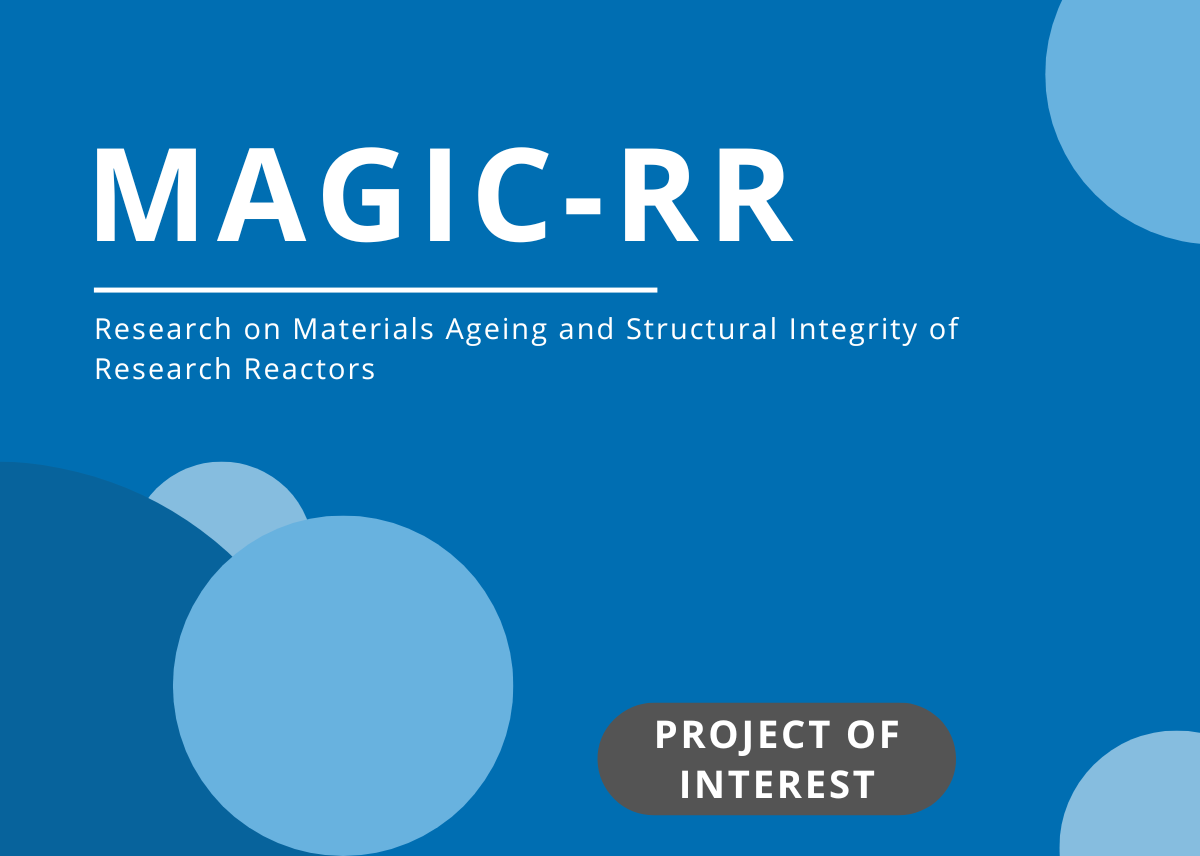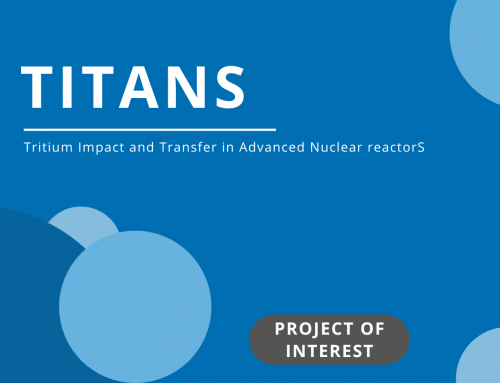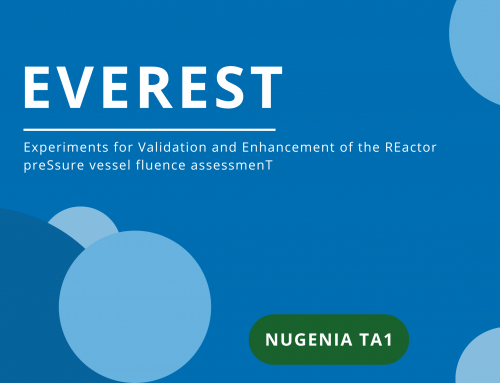
OBJECTIVES
- Improve the current understanding of the irradiation-induced degradation behaviour and corrosion mechanisms in aluminium alloys in RRs.
- Validate the use of sub-size specimens to monitor the radiation-induced embrittlement of Al alloys in the surveillance programs of RRs
- Enhance the ageing management of the existing RRs to support their continuous safe operation (CSO)

EXPECTED IMPACT
- Contributing to safety and innovation: Magic-RR is dedicated to ensuring the continued safe operation (CSO) of ageing Research Reactors (RRs). By studying the degradation mechanisms of materials, such as aluminium alloys, the project supports the implementation of the highest safety standards under the Nuclear Safety Directive. This work will help RR operators, developers, and regulators ensure compliance with safety regulations and improve the operational lifespan of these critical infrastructures.
- Strategy and economic benefits: This project strengthens Europe’s innovation capacity and competitiveness in research reactor technology. By integrating new knowledge on material behaviour, advanced testing methods, and predictive modelling, Magic-RR supports the design of safer, more efficient reactors. These advancements open new opportunities for R&D institutes and utilities, reduce costs through improved ageing management, and minimize reactor shutdowns, boosting productivity and ensuring reliable supply chains.
- Environmental and societal impact: Research Reactors are essential for Europe’s energy transition, contributing to the decarbonization targets outlined in the European Energy Roadmap 2050. Magic-RR supports the long-term operation of reactors that play a key role in material qualification for next-generation nuclear systems. Additionally, the project secures the supply of medical isotopes vital for healthcare.
- Advancing scientific excellent: Magic-RR generates groundbreaking insights into irradiation and corrosion damage in aluminium alloys, developing advance multi-scale models for predicting material degradation. These results are expected to have a high scientific impact, with findings published in leading international journals, advancing global knowledge in nuclear materials science.

HIGHLIGHTS
Magic-RR focuses on:
- Understanding irradiation-induced damage in structural materials (especially aluminium alloys) at high fluence
- Using multi-scale modelling to predict irradiation effects on mechanical properties
- Studying corrosion mechanisms and mitigation strategies
- Developing sub-size testing for surveillance programs
- Sharing operational knowledge and best practices
- Assessing structural integrity of critical components to support continued safe operation (CSO)

PARTNERS
NRG PALLAS / HUN-REN CENTRE FOR ENERGY RESEARCH / CNRS / UNIVERSITE DE ROUEN / TECHNISCHE UNIVERSITEIT EINDHOVEN / CEA / TECHNISCHE UNIVERSITEIT DELFT / LGI SUSTAINABLE INNOVATION / UNIVERSITY OF OXFORD / UK ATOMIC ENERGY AUTHORITY / CANADIAN NUCLEAR LABORATORIES / SOUTH AFRICAN NUCLEAR ENERGY CORPORATION

DURATION
Duration: November 2024 –October 2028 (4 years)
Budget: €3 207 732

CONTACT
Project coordinator: Dr. Ákos Horváth
Technical coordinator: Dr. Murthy Kolluri

EVENTS
- A Summer school at TU Delft premises
- Final seminar and workshop

This project has received funding from the Euratom 2023-NRT-01 under grant agreement No 101166335.





